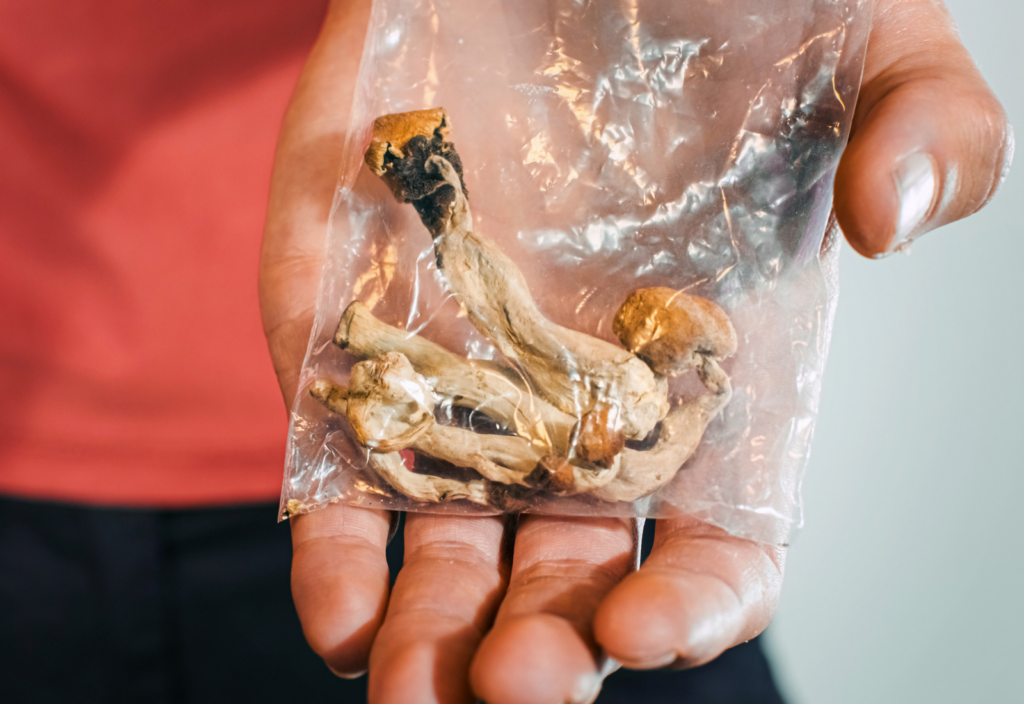On Friday, April 1, 2022 the Oregon Health Authority (OHA) released revised proposed Oregon Administrative Rules (OARs) for psilocybin services. These rules focus on psilocybin products, testing, and training programs. There will be public hearings on these rules on April 18 and April 21, 2021.
In part one, we covered the rules related to psilocybin products. In part two, we covered rules related to testing. This post will focus on rules related to training programs. Readers of this blog will recall we reviewed an early draft of these administrative rules back in February.
This post will summarize the rules by referencing each rule by number.
OAR 333-333-3005
3005 provides the definitions for training-related rules. As with all administrative rules, it is important to grasp the specific meaning of these term to fully understand how these rules apply to training programs. Some of these terms are used in other professions, such as medicine or sociology. For instance, this rule defines “adverse medical reaction” as “a client’s physiological reaction occurring during an administration session that a facilitator reasonably believes may lead to medical harm.” Notice this only occurs during an administration session.
Other terms in this rule like “cultural equity” and “health equity” are used to define goals for psilocybin services in the Oregon community. Training programs under the following rules are geared to make the psilocybin industry in Oregon equitable, accessible, and safe.
OAR 333-333-3010
In order to be licensed, facilitators must complete a training program approved by the OHA.
If a training program wants to be approved, the first step is submitting an application, which must include the proposed curriculum and demonstrate compliance with 3050, 3060, 3070, and 3090. These rules are discussed below. The application fee is $500. If an application is incomplete when it is submitted, the submitter has 90 days to fix it. If not completed in 90 days, the OHA will refuse it and the submitter will have to start over.
Once submitted, the OHA will notify the submitter in writing whether the application is approved or denied. To be approved, a program must truthfully meet the requirements in rules 3050, 3060, and 3070. If denied, the submitter may seek a hearing for reconsideration. If approved, the program may operate for five years. However, the OHA may require new applications if rules change during that term.
OAR 333-333-3020
This rule specifies application requirements. It reiterates that programs must adhere to requirements in rules 3050, 3060, and 3070. Further, it states an application must identify all instructors; there must be at least two lead instructors, and a program director. Finally, all training programs must be located in the United States, or U.S. territories.
Interestingly, there is no requirement for a program to be located in Oregon.
OAR 333-333-3030
As mentioned above, approval requires a program to clearly identify its instructors, who must be qualified under this rule. Instructors are qualified if they have sufficient knowledge, skills and ability to teach the psilocybin curriculum. Evidence of these requirements may include education history, certifications, professional experience, references and even personal narratives.
Finally, to be approved the program must show each instructor understands the program’s objectives, can communicate with students, and demonstrate skill in instruction and supervision. If the instructor roster changes after the application is submitted, the submitter must inform the OHA of the change.
OAR 333-333-3035
After five years, a program’s approval expires. Before its approval expires, the program may submit a reapproval application along with a $500 fee; the program must submit this application 30 days before the expiration date. If reapproved, the program may operate for another five years.
The OHA will deny re-approval if the program does not comply with these rules, or if it has made any false or misleading statements. Upon denial, the program has a right to a hearing.
OAR 333-333-3040
As discussed in part one and part two of this series, recordkeeping is very important in Oregon’s psilocybin industry.
Once approved, a training program must maintain records for students and for the OHA. These records must include every student of every class, the curriculum of each class, as well as the location and date of each class. Further, records must include the date each student completes the program, and each student’s examination results. Programs must maintain all records for five years, and may not be released without student consent (unless the records are released to the OHA).
OAR 333-333-3050
This rule describes the requirements for “core” training, meaning the intellectual knowledge required to adequately prepare a student to administer psilocybin.
Core training must consist of at least 120 hours, and at least 30 of those hours must be in-person. For the amount of hours not in-person, at least half of them must be through online synchronous learning (such as live Zoom sessions). To give an example of what this could look like, a program could have 30 hours of in-person classes, 45 hours of live Zoom session, and 45 hours of online videos.
The required curriculum includes: Historical, Traditional, and Contemporary Practices and Applications; Cultural Equity in relation to Psilocybin Services; Safety, Ethics and Responsibilities; Psilocybin Pharmacology, Neuroscience, and Clinical Research; Core Facilitation Skills; Preparation and Orientation; Administration; Integration; and Group Facilitation.
OAR 333-333-3060
Here, the OHA expands on the curriculum topics mentioned in 3050. These are the requirements for each topic, or “module”. This rule is extensive and detailed, so we are only providing highlights. You may read the full text of the rule here.
- Historical, Traditional, and Contemporary Practices and Applications will not only involve psilocybin practices, but also the Controlled Substances Act and its effect on psilocybin research and drug policy.
- Cultural Equity in relation to Psilocybin Services will cover racial injustice, health inequity, and Intergenerational trauma.
- Safety, Ethics and Responsibilities will involve client vulnerability in an altered states of consciousness, as well as use of touch, client confidentiality.
- Psilocybin Pharmacology, Neuroscience, and Clinical Research will teach the pharmacodynamics and pharmacokinetics of psilocybin, effects on the brain and models of substance use.
- Core Facilitation Skills will cover client communication, focusing on a nondirective facilitation approach. It will also teach student how to monitor administration sessions, considering the type of experiences psilocybin produces.
- Preparation and Orientation will train students how to screen prospective clients, how to evaluate health risks prior to administration, as well as informed consent.
- Administration will focus on the actual consumption of psilocybin. Students will learn dosing strategies, and “Set and Setting.”
- Integration is the meeting between a client and facilitator after the administration session. For an effective integration session, students must know how to identify appropriate resources to help clients interpret feelings and facilitation positive changes.
- Group Facilitation is an administration session with more than one client in the same place at the same time. This module will teach students to assess group compatibility and facilitate group communication.
OAR 333-333-3070
Practicum training is an interactive experience, where students take the knowledge they gain in a classroom setting and apply that knowledge in a realistic situation.
Psilocybin training programs must require students to complete at least 40 hours of practicum training. Students will actually facilitate and observe non-ordinary states of consciousness. This may occur at any Service Center licensed for psilocybin services, but the client being observed must provide written consent. However, if practicum sites are not available, practicum training may involve watching recordings of facilitation sessions, role playing, meditation etc.
OAR 333-333-3080
For particularly qualified students, training programs may grant credit for previous training. However, the student must provide documented evidence of prior relevant training. Further, programs may not grant more than 40% of the program’s training hours. Finally, credit is not available for Cultural Equity in relation to Psilocybin Services, Safety, Ethics and Responsibilities, or Preparation and Orientation modules.
OAR 333-333-3090
A training program can only be “complete” if students possess the knowledge and skills required to practice as a psilocybin facilitator. After completion, the program must administer a comprehensive exam. When a student completes the program and passes the exam, the program must provide written confirmation to the student.

























